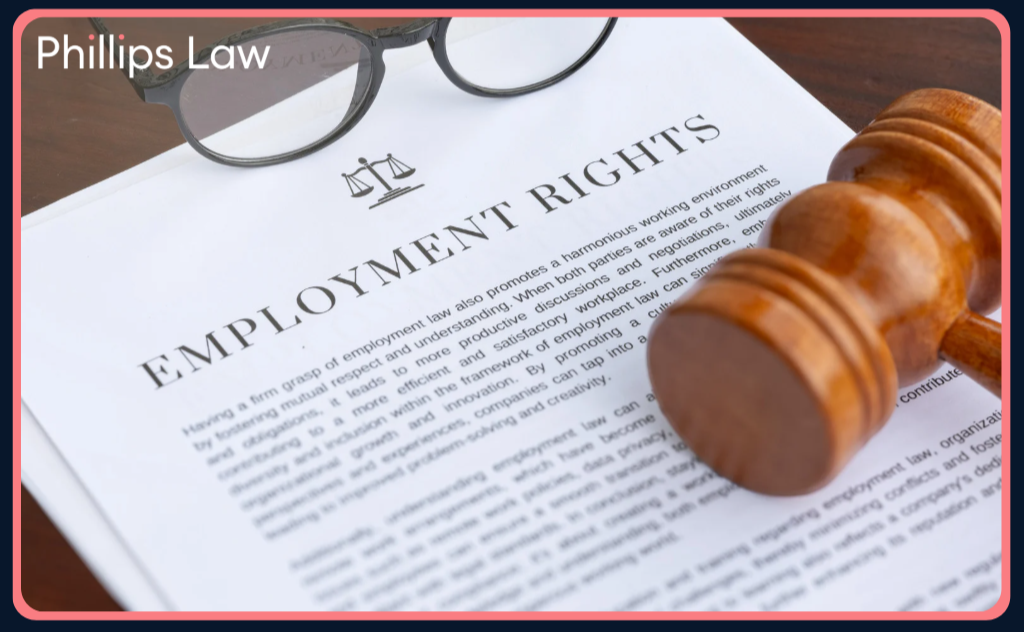
29 October 2024
Employment Law for Executives: What Should You Be Aware Of?
As an executive or director, you shoulder immense responsibilities—not just in leading your organisation, but in safeguarding your own position. In a world of increasing scrutiny, legal complexity, and high stakes, it’s essential to be proactive in understanding your rights, duties, and protections. Here are the key areas that demand your attention:
- Your Written Contract: Your Safety Net in Uncertain Times
- Service Agreement: Think of your contract as your shield. It should clearly define your dual roles, expectations, salary, benefits, and notice periods. Whether you’re negotiating your compensation or navigating a transition, having these details clearly documented is crucial.
- Review Regularly: Your career evolves—so should your contract. Regularly updating your agreement ensures it accurately reflects your changing role and responsibilities.
- Bonuses & KPIs: Don’t leave incentives to chance. Make sure KPIs, targets, and bonus criteria are clearly outlined. And be cautious of “clawback” clauses, which could reclaim bonuses if certain conditions are not met.
- Understand Your Employment Rights
- Statutory Rights: Familiarise yourself with key laws such as the Employment Rights Act 1996, Equality Act 2010, and Working Time Regulations. Ignorance here isn’t bliss—it’s a liability.
- Equality Protections: The Equality Act protects you against discrimination based on protected characteristics. Make sure you understand your rights and those of your team.
- Companies Act 2006: As a director, you have legal duties beyond those of an employee. Missteps can have far-reaching consequences, so stay informed about your fiduciary obligations.
- Maintain Clear Records: Your Evidence Trail of Protection
- Performance Reviews: Keep detailed records of your achievements and any feedback. In times of dispute, these could serve as your most persuasive evidence.
- Important Communications: Written confirmations of critical discussions or decisions can be invaluable, especially if verbal promises are later questioned.
- Seek Independent Legal Advice When Necessary
- Conflict of Interest: If you have external business interests or other roles, address potential conflicts early. Don’t gamble with your career—seek impartial legal advice to protect your position.
- Dispute Representation: When disputes arise, early legal advice can be a game-changer. Don’t navigate negotiations or exits alone—get a legal expert on your side.
- Adhere to Company Procedures and Policies
- Grievances and Policies: Policies aren’t just paperwork—they’re your guide in difficult times. Ensure you understand them fully, and follow grievance procedures meticulously to protect yourself.
- Board Decisions: Make sure all board decisions affecting your role are properly documented and legally compliant. Your career, and reputation, depend on it.
- Insurance & Indemnities: Your Safety Net
- Directors & Officers Insurance: D&O insurance isn’t optional. Make sure it’s adequate—remember, liability doesn’t end when you leave.
- Indemnity Clauses: Check if indemnity clauses cover potential risks. If not, consider negotiating their inclusion to strengthen your protection.
- Know Your Termination Rights: Prepare for the Unexpected
- Notice Periods & Terms: Ensure that notice periods, termination clauses, and directorship rules are clear. A well-drafted exit plan can prevent unwelcome surprises.
- Fair Dismissal: In case of termination, knowing your rights and timelines is crucial. Don’t delay seeking legal advice if the fairness of your dismissal is in question.
- Confidentiality & Non-Compete Clauses
- Reasonable Restrictions: Confidentiality clauses and non-compete agreements can limit your post-employment opportunities. Review these to ensure they are reasonable and enforceable.
- Commit to Regular Training & Updates
- Stay Informed: Laws evolve, and so should your understanding. Regularly updating your knowledge isn’t just advisable—it’s essential to protect yourself and the business.
Personalised Legal Advice: Don’t Leave It to Chance
Your role as an executive comes with unique challenges and risks that generic advice simply can’t cover. To truly safeguard your career, you need tailored, strategic guidance. Phillips Law specialises in employment law for executives and directors, offering a clear path through complex legal landscapes.
If you’re facing a challenging situation or simply want to ensure you’re fully protected, don’t hesitate—contact us today for personalised legal advice. A single conversation could be the difference between security and vulnerability in your career.
Email [email protected], or call 01256 460830, and we will deal with your enquiry quickly.
Written by Gill Brown

Contact Us
Please call us or email and we’ll get back to you as soon as possible.

We are delighted to announce that Phillips Law is the regional sponsor of the Knight Frank Schools Triathlon, supporting both the Charterhouse and Marlborough events. The Schools Triath ...
More
What farming families and business owners need to know If you own a farm, land, or a family business, you will have undoubtedly heard that inheritance tax (IHT) rules are changing. Whil ...
More
We are about to see a great wave of Employment Law changes following the Employment Rights Act 2025 becoming law in December. We will use these updates to keep you abreast of the change ...
More
As we look back on a busy and notable January at Phillips Law, we wanted to share a round-up of recent milestones, insights, and community moments from across the firm. Phillips Law cel ...
More
A guide to share incentivisation for employers and an update on the new employment rights. We have created a morning of practical insight that focuses on how you can reward and retain y ...
More
We are proud to announce Victoria’s Promise as Phillips Law’s Charity of the Year for 2026. Victoria’s Promise is a local charity providing dedicated support to young women aged 25 to 5 ...
More